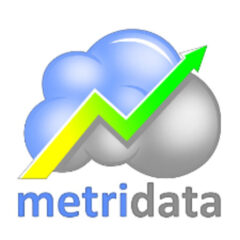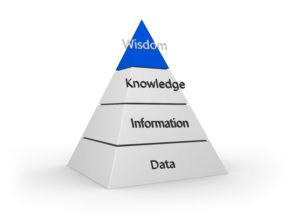You see this pyramid all over the place when people start talking data. The DIKW model has been a part of information sciences for many years. Also known as the data-information-knowledge-wisdom hierarchy and associated with knowledge management. It lays out the relationship for how data gets meaning through the lens of our perceptions. Although it is unclear who exactly came up with the concept, many different people have referenced the concepts throughout history. To describe it better, One way to show the relationships might be the English language and how it uses the whole hierarchy to communicate meaning.
Data
For our example, the English language contains words made up from letters which does not really mean a whole lot by themselves but they serve as the base to build the next steps of meaning. This is much like how data provides the building blocks of information. On a side note, it is very important that data is consistent in order to be useful. if people had different interpretations for what vowels were, we would be in a real pickle.
Information
Onward with our analogy! Sentences provide meaning for groups of words and is a good example of the relationship information has with raw data. Although sentences by themselves are still pretty neutral, they are very important to forming concepts and describing the world around us which become our knowledge. Information is like a sentence and describes a complete thought.
Knowledge
Paragraphs give meaning to groups of sentences and paint the picture of points that are made. At this level we use logic and reasoning to calculate answers to questions. Knowledge also deals in deduction and is able to build on itself from just a couple key sources of information. At this level, we also categorize information to be true or false.
Wisdom
Books are like wisdom and give us the whole story with the big picture. They are made up paragraphs and chapters that build off of each other. We learn the moral of the tail along with full lessons that enrich our existence while making life a whole lot easier when we know what to do and how to do it.
Our lives are like vast libraries which contain books that represent our experiences. We use wisdom to give weight to things we value which helps us to make the best decisions possible. Combinations of Data, information, knowledge and wisdom we trust ultimately turns into the actions we take which determines outcomes of success or failure.
This model gives a great simplified look at how information comes together to create knowledge and wisdom. The DIKW model can turn into a very deep conversation as we start throwing other things like right and wrong or morality into the mix. With all this in mind, how does knowing the relationship of data to decision help you?

